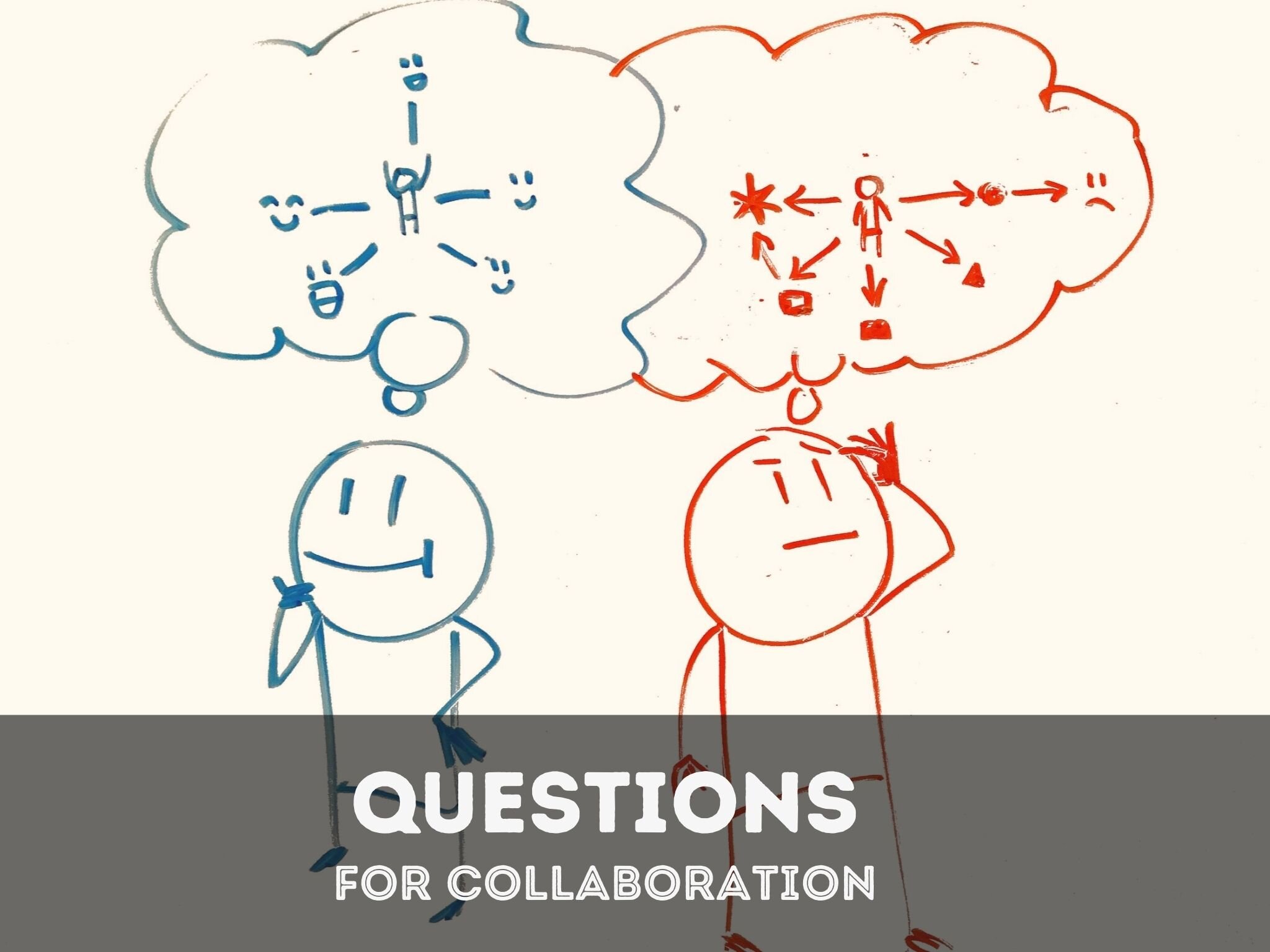Questions as Tools to Collaborate: What Do You Hope Will Happen and What Might Go Wrong?
If we admit we have assumptions and that we can learn about both our end user audience and ourselves along the way, that's a useful place to start to gather and use questions.
What people say, what people do, and what they say they do are entirely different things.
I looked through my tweet bookmarks who tweeted this quote recently. I'm guessing it was Austin Kleon, but I'm not finding it at the moment. I've heard this quote before on product development and applied research teams. Each case it was brought up to help folks dig deeper into understanding the product's audience. But I think it points to how we need to consider how we're also quirky humans, the ones sponsoring, leading, learning, and making.
How can we make sense of the best of what we know and what will be helpful to learn next? Questions! I offer this knowing not all collaboarations are safe spaces for questions and I've been journaling thoughts about that I hope to share soon. Note to future Rob, this is a solid place to add that link to the post you wrote.
Questions to explore what we hope will happen.
Explore the positive cases and possibilities, using hope as a signal. Let's find out what our teams, want to cause for others and how they see their work contributing. Clarify the shared purpose, dividing up the responsibiliities, specific commitments.
At the beginning of a project, create and curate a space for questions. What are you hoping to learn more about? Create questions that will help the team research, design, and build with those questions as a focus.
Questions can be an invitation and also an announcement. What are you saying about yourself and what you understand and what you wish to understand?
It's a sign that something might be amiss if a new effort has no questions, worth asking why.
Questions to explore where things might go wrong.
When you're creating something for someone else, include them in ways that are aware of potential harm. Creating is powerful. How could that power cause problems for your audience?
Consider the negative cases and learning about them as an investment.
Don't give in to the theater of devil's advocacy, it's often too simple. Try to consider enough about the context of the people you're serving. Place, time, culture, relationships involved where your creation appears in their lives. What pressures of negative experience, negative actors, and situations.
This is a whole topic in itself worth exploring. Consider ideas like threat modeling and scenario games to get your team to dig in, generate characters, scenarios, and events. Perspective taking and stories with a real desire to find flaws to later create ways to fix existing ones and avoid causing the new potential flaws.
Now you've invested your understanding of history, culture, platforms you use and have some credible scenarios to ask new questions to inform what you build.
Create a focus where to go next both learning and building.
How can a question create focus? When collaborators bring questions, isn't that adding to ambiguity? Consider it a service to include curiosity with just enough structure to add focus.
When you find a question puzzling instead of focusing, ask where does exploring this particular question take us? With at least five audiences to consider what you hope will happen and what might go wrong: your main audience, your organization, your team, the world, and you, there's always someone to learn more about. To paraphrase that quote: What people say, do, and what they say they do are three different stories.

